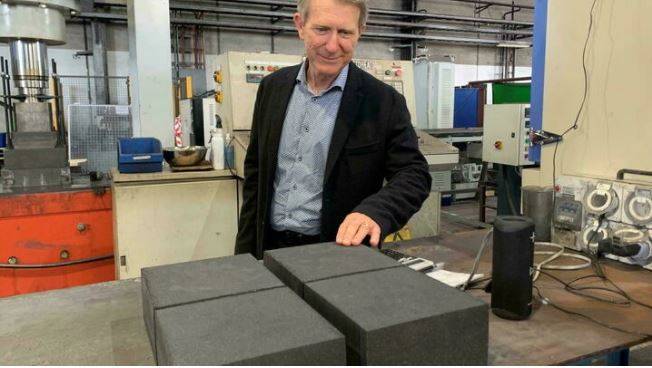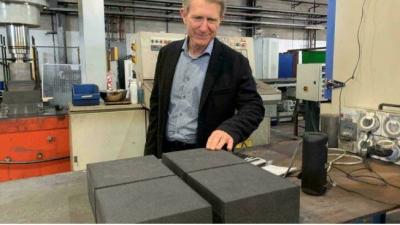A team of engineers at the University of Newcastle in Australia has patented a material designed to store thermal energy in the form of blocks, which they hope will facilitate the shift away from coal-derived energy. The blocks, known as "mixed gap alloys," are made of aluminum and graphite and store energy generated from renewable sources. Research indicates that they can last for about 30 years without any change in reliability.
Eric Casey, a participant in the invention, stated that his team was working on thermal converters, which produce energy through heat, when the idea to transition to energy storage came to him. He added, "The key components of the block are the aluminum particles that provide the latent heat and melting energy we’re discussing." He continued, "So it will melt and return to solid state thousands of times during the life of the block, yet remains fixed in place by the graphite. We have other systems, but graphite is the primary factor in this case."
Each block weighs about six kilograms and contains one kilowatt-hour of stored thermal energy. Casey declined to specify the expected price for each block.
**Long-term Issues**
Casey is currently the CEO of M.G.A. Thermal, the company manufacturing these blocks, which is collaborating with Swiss company E2S Paul AG to utilize the blocks as part of a technology design to modify and repurpose coal-fired power plants in Europe. The group hopes to facilitate a transition away from coal energy by storing thermal energy and gradually shutting down boilers at power plants.
Casey noted, "This allows for the reuse of these assets, which are currently worth billions of dollars but will be worthless in five years." He added, "Governments need to shift their thinking away from short-term issues, like elections, to the more challenging matters with long-term impacts."
While many countries have pledged to achieve net-zero emissions by 2050, Australia—one of the largest greenhouse gas emitters per capita—has refrained from committing to specific targets. Australian Prime Minister Scott Morrison stated that the country aims to reach this goal "as soon as possible and preferably by 2050," and anticipates exceeding its commitment to reduce carbon emissions by 26 to 28 percent from 2005 levels by 2030.
Casey expressed, "I would like to see Australia commit to eliminating emissions by 2050 or as soon as possible if feasible... this is truly the greatest challenge of our era. COVID-19 is nothing compared to this challenge."




